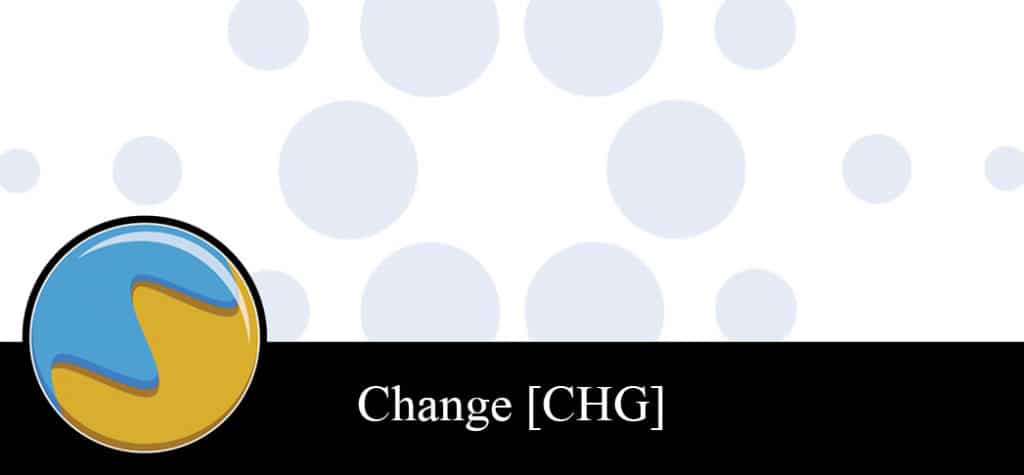This week’s guest on the Cardano SPO Column is a stake pool committed to supporting the global Cardano ecosystem and donating to independently selected charities and not-for-profit organizations: Change [CHG].
Last week’s guest was a stake pool running on 100% renewable energy and focused on realizing Cardano’s green blockchain potential.
This initiative is a point of reference for everything Cardano and every week or two we will invite a Stake Pool Operator (SPO) to answer some questions and give us an update directly from within the Cardano community.
Considering that many of our readers are new to the crypto space, we will have a mix of simple and technical questions.
Summary
Cardano SPO, interview with Change [CHG]

Hi, thanks for your time. Tell us something about yourselves, where are you based and what are your backgrounds?
We are based near Vancouver, British Columbia in Canada. Change Stake Pool [CHG] emerged from our individual professional backgrounds in health care as well as information technology.
Change Pool is dedicated to supporting underserved not-for-profit organizations doing good work and achieving positive results in health care and social sciences.
What’s the path that led you to Cardano and to become a Stake Pool Operators (SPO)?
The comprehensive commitment of Cardano and IOHK to quality on both technical and ethical levels resonates with us.
We are excited to be involved at a relatively early stage in the growth of trustless Web3 solutions capable of helping society solve some of our most urgent problems today. The most difficult challenges that society currently faces result from coordination failures. Failures to coordinate occur when a group of people could achieve a desirable outcome by working together, but the effort fails because people do not coordinate their decision making.
Coordination failures are situations that everyone hates, but that endure nonetheless. For example, nation states refusing to give up nuclear weapons because they want to defend themselves, despite the existential threat posed to the whole world, is a failure of coordination. We can agree that coordination is a better outcome. However, from within the system, no one actor can create change.
Decentralized blockchain networks are mechanisms for human resource allocation and human coordination. The central organizing principle for Web3 is not having to live with coordination failures any longer.
Can you share your thoughts about the consolidation of power of big tech companies, the related issues and how blockchain technology can be a solution?
Collecting and storing user data on centralized servers facilitates social media companies to retain full control over the distribution of content that users generate. In a cutthroat industry, even a compassionate corporate citizen cannot be nice because doing so may lead to bankruptcy. Under immense pressure to prioritize engagement and growth, technology platforms have created a race for human attention that has unleashed invisible harms to society, as outlined for example in the peer-reviewed and journalistic research presented in the Ledger of Harms by the Center for Humane Technology:
- Our ability to make sense of the world is undermined by misinformation, conspiracy theories and fake news.
- Technology’s constant interruptions and precisely-targeted distractions take a toll on our ability to think, focus, solve problems, and be present with each other.
- Technology increasingly pervading our waking lives is linked to a wide range of effects on our happiness, self-image and behavioural health including stress, anxiety, loneliness, feelings of addiction and increased risky health behaviour.
- While social networks claim to connect us, all too often they distract us from connecting with those directly in front of us, leaving many feeling both connected and socially isolated.
- Social media platforms are incentivized to amplify the most engaging content, tilting public attention towards polarizing and often misleading content, enabling manipulative practices that undermine democracies.
- Technology integrates and often amplifies racism, sexism, ableism and homophobia, creating an attention economy that works against marginalized communities.
- From developmental delays to suicide, children may face a host of physical, behavioural and social challenges from exposure to unrestrained levels of digital technology. Permanent changes in brain structure can have serious long-term consequences for children’s development, impacting how children will think, feel and act throughout their lives.
- Many technology leaders do not allow their own children to use the products they build, implying that they’re keenly aware that products creating short-term, dopamine-driven feedback loops from which they make so much money pose risks, especially for young users.
By contrast, decentralized technologies tend to empower content creators.
Charles Hoskinson has proposed Elon Musk to decentralize Twitter, what do you think of it? How would a decentralized social network impact society?
In seeking to change the culture of Twitter, hopefully Elon Musk involves knowledgeable and experienced researchers to methodically investigate problems and challenges that the social network faces in order to develop effective plans for improvement supported by evidence as well as existing research in the field.
Conducting research takes time and results may be unexpected, as Charles Hoskinson may know. Whether Elon Musk may be willing or able to follow through on his commitment to change Twitter once the cost and effort may be more accurately estimated remains to be seen. Most IT companies having Research and Development (R&D) teams dedicate about 99% of effort to development and 1% to research. For example, Mark Zuckerberg chose to drop out of Harvard to develop Facebook without ethical oversight.
Hopefully, the culture of Twitter changes for the better, over time.
Zion is a decentralized social network platform currently in early stages of release. Solutions to the problems and challenges of today’s centralized social media platforms that the Zion team has developed are outlined on their website and seem well worth reading.
Awesome. Any final thoughts? Where can people stay in touch?
Feel free to contact us at Change Stake Pool [CHG] anytime on the Cardano Forum @ParadoxicalSphere or by e-mail.
When the Zion platform begins to scale, we also plan to cultivate a community for CHG Pool members on Zion.
Disclaimer: The opinions and views of the SPOs are their own and do not necessarily reflect those of the Cardano Foundation or IOG.




